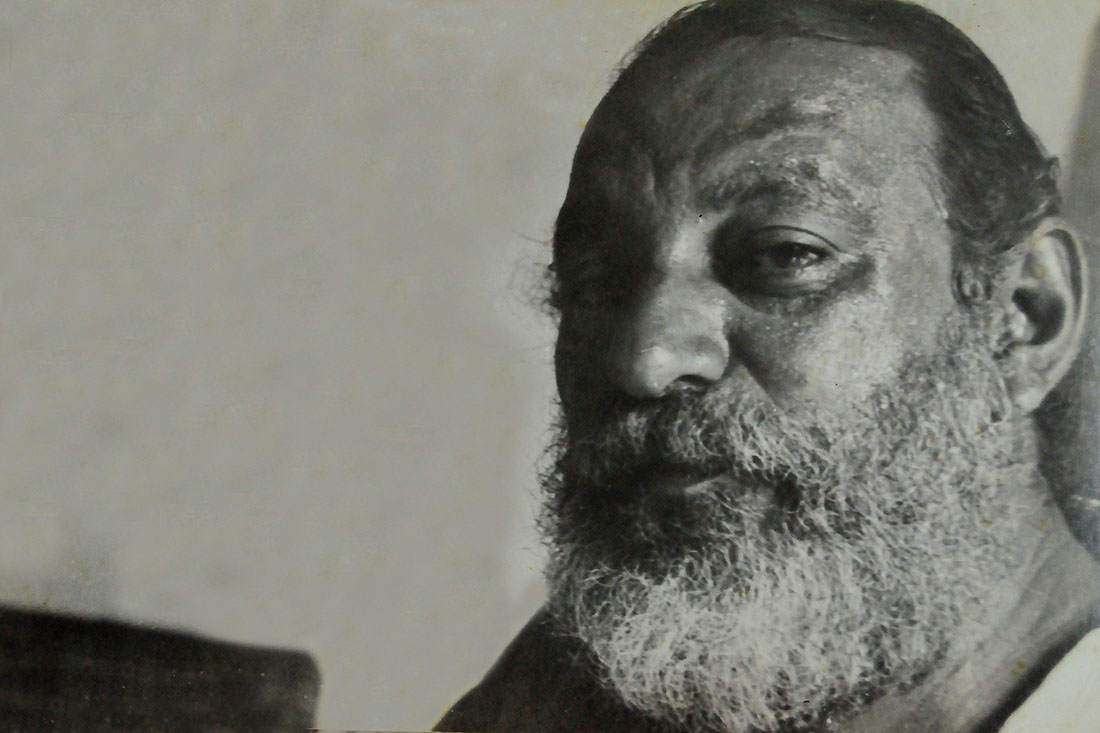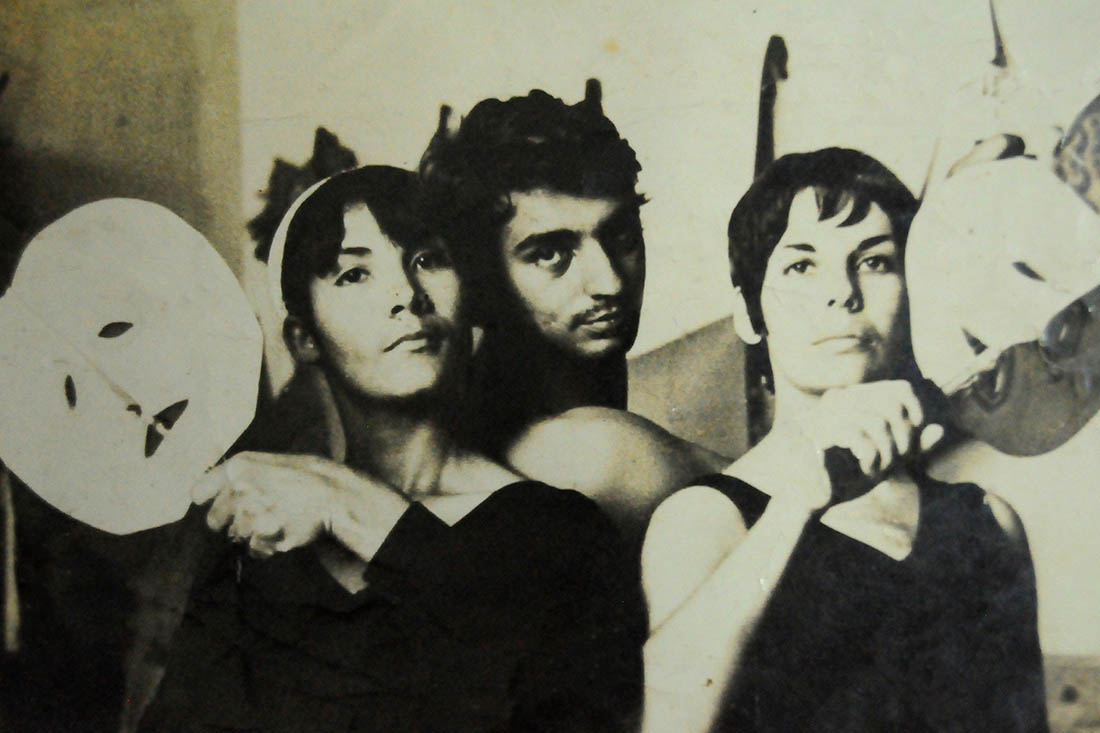When these days come, when something that involves many friends is celebrated, I always fall into the same question … what do I do? Who do I congratulate without leaving anyone I love or not? This time I found a way that satisfies me
Regarding the event that the AHS is celebrating, Canto Adentro, about troubadours and contemporary trova, I will then talk about a friend in common, a friend of all even if you have not met him, because his life story and … the music unite us: Luis Miguel Escalona Robaina
Luis Miguel Escalona Robaina … “Miguel, Miguelito or Escalona” for some; His father was a commercial painter and troubadour, to whom we owe then, I suppose, his approach to the guitar, a native of Camagüey, born in October 1949, who began his career as a composer in the sixties, specifically in 1964, teaching in High school.
Miguelito began his work as the founder of the Guiñol theater in Camagüey, in 1968, together with that other great man from this land of ours who is Mario Guerrero, his director until he passed away. The first thing he did was work on the props, as a stagehand and in making puppets, which, in the voice of maestro Guerrero … “had great ability in that particular thing, integrating himself into acting and becoming one of the best actors at the Guiñol Theater . ”
He makes his debut as a musician and actor in a play called “Que viva el color”. During his growth as a member of that group, he became interested in dramaturgy and his first foray as a director was an adaptation of the story “El canto de la Cigarra” by Onelio Jorge Cardoso, which he called “Pequeños habitantes del monte”, venturing into the theater of figures, a beautiful show where music was characters of central importance, which set the tone in that group for later works.
Vivacce
In the courtyard of the Julio Antonio Mella Library in this city, a space that some called open essay was created because of the freedom of its structure, but in reality it was called Conjugation Workshop, founded by Verónica Hernández Placeres and Luciano Castillo, where The members of the AHS at that time met and Miguelito was always present, a time of a very marked cultural effervescence, where… “we hardly had any resources, but we replaced it with a great imagination and enormous desire to work”… affirms Luciano Castillo.
Escalona, guitar in hand, was in every cultural activity that was carried out here in the city. He had an urgent need to gather the troubadours that he found on his way to collaborate in his development and when he saw something that seemed like musical talent in someone, he simply did not rest until he had him by his side and made him see his worth. He was a unifier, friend, and shared his knowledge. Silvio knows him through Noel Nicola, who gave him a cassette, on one side of Augusto Blanca and on the other Miguel Escalona. He comments that it seemed to him a way of saying personal, different, rebellious.
With strong criteria and an overwhelming sincerity, with a big heart and an accurate look, Escalona made friends, and enemies. Says Kike, Juan Enrique Carballo, today guitarist, composer, vocalist of the Trova Camagüeyana group, and at the time we met him, a university troubadour highly awarded for his excellent quality, that, after three minutes of talking with him; Either you hated him to death or you loved him forever …
There are those who say that Miguelito was always marked by that severe, critical saying, irreverently faithful to his criteria and principles, some think that it was hurtful, that he did not make concessions and that led him to not be seen favorably by many of the managers of institutions and organizations. In fact, in 1972, where they brought together troubadours who were all over the country, singing, making committed music, Miguelito was not invited to represent Camagüey in the first meeting of young troubadours held in Manzanillo and despite everything he remained faithful to his beliefs.
After a while came the time of the group: Canto Libre, where their creative process from composition grew to musicalize works and make a vocal, suggestive, complex work, highlighting the poem “Peñas Arriba” by Rubén Martínez Villena.
Its character, projection, prominence, also contributed to the fact that until today “Canto Libre” is summarized, in one of the most important groups of the last century in the history of the music of Camagüey and, in my modest opinion, of the country.
Allegro
Very young. I would be 18, 20 years old when I met him. We used to go to the trova a lot with Enrique, friends, especially on Sunday mornings when we left rehearsals at the Teatro Principal of the Conjunto Artístico Maraguán, to see the old men play.
Yes to Pablito, Lombida, a pure trova, guitar and two wonderful voices that are not physically present today and to whom I owe a little conversation with myself. There he was, always, enjoying his tobacco, his rum and the music. We all sat down and it became a memorable day, today, in retrospect and thirty years later, I assure you that they were days that formed our character, love; for what we do and the city.
Miguelito, talkative and accurate
I consider myself one of the privileged to listen closely to his songs, because we discussed plans to do interesting projects in Camagüey to the sound of a drink of rum and a few beers.
His concern that the Symphony Orchestra had a principal conductor, that the musicians stay strong and due to limited financial resources they would not sell their talent, because the Casa de la Trova was always a place where the troubadour with guitar in hand had a space, a place, where to show friends or not, their new and old creations, because when he heard the song that Kike made to our son, he expressed … “I would not like to paraphrase, but that song tastes like me” … because he insisted a lot that we continue studying and not leave Camagüey despite everything, that we don’t allow the blows to skew our dreams.
Always grateful for having been with greats, today International Music Day, I wrote about Escalona, the one that called me a beautiful mulatta or pretty girl., because he did not want to be repetitive with my name, which he only said when he sang it in improvised arpeggio and then to him Luisiño, he looked at me seriously and automatically outlined a smile.
A musician to whom the young troubadours of this city are dedicating an event called Canto Adentro, how beautiful they remember, how beautiful looking ahead, knowing what was behind, the base, the foundation, the history. Happy day.
Translated by: Aileen Álvarez García







